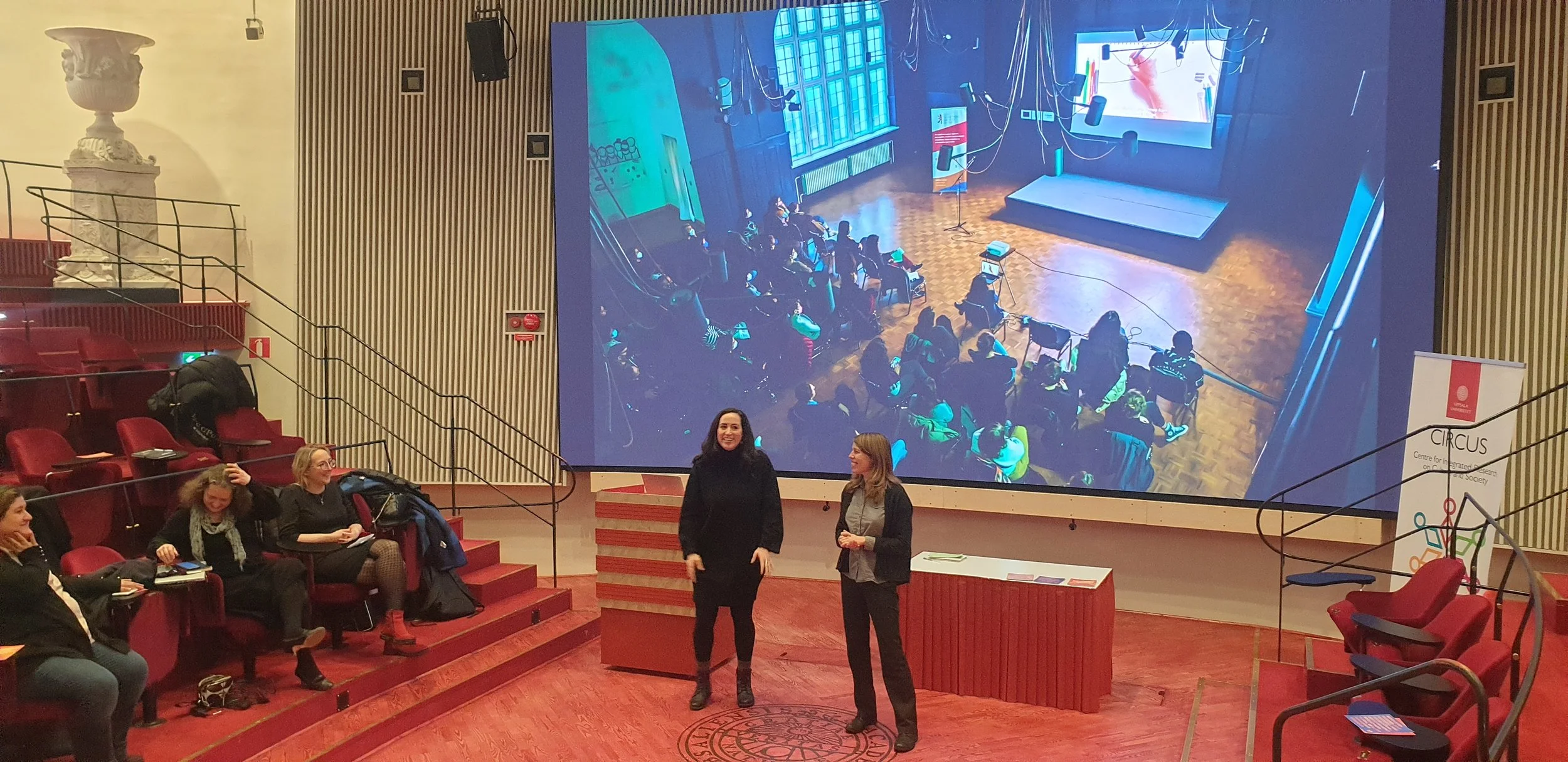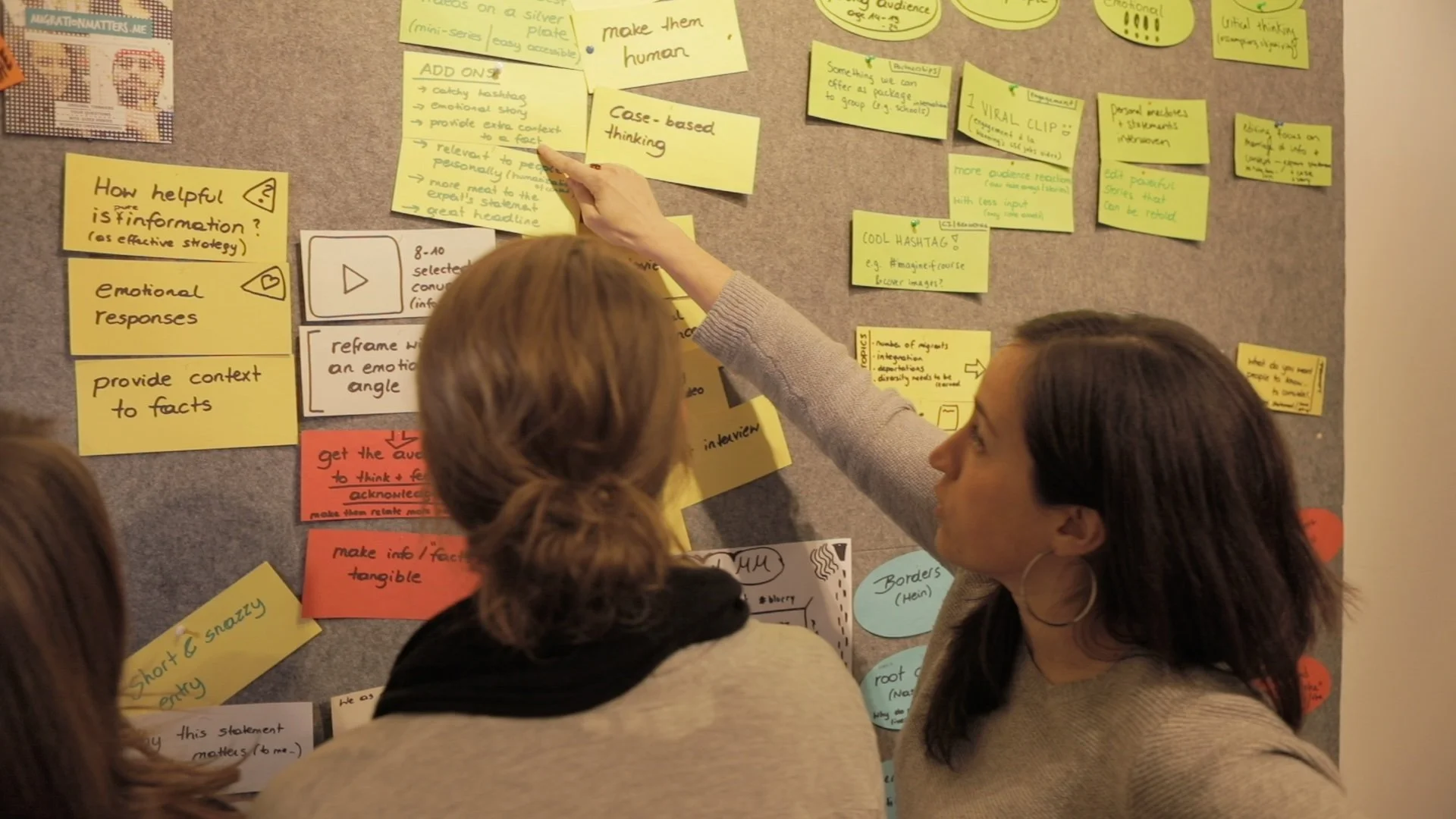Migration Matters Screening at GAPs Kick-Off
Protagonists from the Migrant Lives in Pandemic Times series ("Migrant Lives Faces")
From March 8-10, 2023, the “GAPs: Decentring the Study of Migrant Returns and Readmission Policies in Europe and Beyond” project consortium met in person at the University of Uppsala in Sweden to kick off an ambitious three year Horizon Europe research project that aims to better understand the complexities of return migration and examine the disconnects between policy expectations and their actual outcomes.
In addition to meetings on individual work packages, project objectives and management, dissemination, and ethics and data management, the meeting was enriched by several content-based events. One of these events was a film screening and discussion on the potential and challenges of digital storytelling for shifting migration narratives and informing research-based policy together with academics and migrants.
The screening event was led by our partner organization, Migration Matters. Migration Matters is an NGO based in Berlin, Germany that makes research and original perspectives on migration and diversity issues accessible to the public through educational video and dialogue events to encourage evidence-based debate and, ultimately, to combat increasing polarization and discrimination in society.
The screening and discussion took place in the beautiful Humanities Theatre at Uppsala University and attracted over 50 participants, primarily members of the Horizon Europe project, academics, and students from the university. It was co-hosted by the Centre for Multidisciplinary Research on Religion and Society (CRS) and the Centre for Integrated Research on Culture and Society (CIRCUS).
After a brief presentation of the GAPs project and Migration Matters, Sophia Burton and Bernadette Klausberger from the MM team led the participants through a two-part documentary film screening and discussion exploring very different examples of visual stories produced by Migration Matters over the past years.
During the event, the MM team encouraged the academic-driven audience to focus not only on the topics and research presented in the videos, but to take particular note of the formats and methodologies implemented as well as the protagonists featured. The first screening cluster focused on academic-based content from series on migration and nationalism, migration and climate change, and borders.
Sophia Burton and Bernadette Klausberger from the Migration Matters team
The Migration Matters team working on a video series concept
They featured protagonists ranging from researchers and academics to youth climate activists and moderation from the MM team. The second cluster focused on documentary storytelling from the international project Migrant Lives in Pandemic Times, featuring the stories of a diverse range of migrants around the world and how their lives were impacted by the pandemic in terms of work, family, mental and physical health, and community. This cluster included the story of one returnee[1] from the UAE to Kerala, India. The screened videos represented a mix of in-person productions and remote productions during Covid and were produced for diverse target groups, ranging from youth and university-level students to policy makers.




